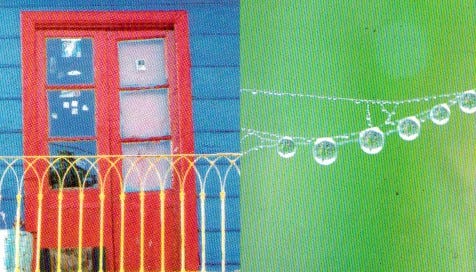The temperature is rising and it’s becoming more of a challenge to stay cool without warming the planet even more. I used to tell people not to use air-conditioning, but given the extremes we’re seeing now it’s hardly feasible to avoid using a/c in some places. But turn up the temperature control as high as you can. (Compare it to your winter heating setting - you should expect to have a warmer home in summer than in winter, right? But I’ve often been colder in US buildings in the summer than in wintertime.)
Human bodies are adaptable and we can get used to living in rooms that are warmer or cooler, within reasonable limits. Temperature changes are actually good for our immune systems. Here are a few more ideas:
Don’t cool rooms you’re not using, and - this is often the single most important thing for both heating and cooling - seal the leaks, clear the vents, and generally make sure your a/c system is working at maximum efficiency. I’ve heard an estimate that we could reduce energy use by 15% just by doing this basic housekeeping.
Be flexible. Move downstairs, or to a cooler spot outside, and make sure that when things do cool down that you open the windows and let in cool air.
Install ceiling fans. They are inexpensive to buy and run and amazingly effective.
Consider a whole-house fan, which can be equally effective in a different way. In places like the Berkshires where it almost always cools down at night, even during a heatwave, the attic fan pulls cool night air through the house. In the morning I gradually close doors and windows and pull the curtains.
Next up for me is researching heat pumps - which both heat and cool. I first learned about these when my brother in Denver mentioned that the old contraption on the back of his house was a swamp pump.
In the longer term we will have to think about where we build and how we build. I’m especially interested in vernacular architecture: solutions that communities and designers have come up with over the centuries to live more comfortably, but using far fewer resources than we do.




